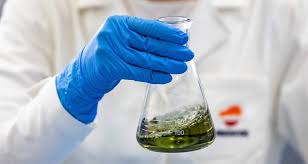Turning sewage water into biofuel, nutrients? Nagaland University shows the way
In a major headway that promises to reshape India’s approach to wastewater treatment, researchers at Nagaland University have developed a nature-inspired technology capable of extracting valuable resources like nutrients, biofuels, biogas, and clean water from wastewater.
Led by Professor Prabhakar Sharma, Head of the Department of Agricultural Engineering and Technology, the study promotes “bio-based soft technologies” systems that mimic natural processes involving plants, algae, and microbes to clean wastewater while recovering useful by-products.
These technologies are energy-efficient and cost-effective, and they hold immense potential for decentralised treatment in rural and peri-urban areas.
Published in the peer-reviewed journal Current Opinion in Environmental Science and Health, the research highlights how innovations like algae-based systems, microbial fuel cells, and constructed wetlands can be integrated into national sanitation and water reuse programmes.

“The global burden of wastewater from homes, farms, and industries is worsening environmental damage,” said Professor Jagadish K. Patnaik, Vice Chancellor of Nagaland University. “Conventional methods ignore the potential for resource recovery. This research turns a challenge into an opportunity.”
According to Professor Sharma, these soft technologies offer a shift in thinking — treating wastewater not as waste but as a source of valuable resources. “They can reduce pollution, improve water quality, and support sustainable agriculture.
They also align with India’s goals on circular economy and climate resilience,” he noted.
The next step is pilot-scale implementation. “Most of the work has been done in labs,” Professor Sharma said. “We now aim to set up decentralised treatment units with local and industry partnerships and focus on cost optimisation and long-term performance.”
The project stands out for its emphasis on pollutant removal, resource recovery, and the handling of microplastics, offering a comprehensive and scalable solution to India’s wastewater challenges.
This article has been republished from The India Today.in

